The Property Pod - By Shared Ownership Week Ep 2 Money Talks (and we're all ears) Guest: Rupi Hunjan
It's a scary idea, but buying your first home is likely to be the biggest financial decision you'll have to make. It's perhaps no surprise then, that many first-time buyers find it daunting to think about how much they need to save for that dream home.
Was Maths your least favourite subject at school? Don't sweat it. At the Property Pod, we spoke to Rupi Hunjan, CEO of Censeo Financial, to get the low-down on home-buying finances, saving tips, and how you can find the best affordable option in the market.
You’re from Censo Financial - what is that?
Rupi: Censeo Financial is a mortgage broker that specialises in affordable homes. We’ve been around for about 16 years, and look after quite a few housing associations and developers in the sector.
I’m a renter, have always rented and I’m interested in getting a property. What is a mortgage and how do I get one?
Rupi: A mortgage is a debt against an asset (your home), and usually you need one if you’re buying a property because they’re relatively expensive. So you need to go and find someone to lend you the money - usually it’s a bank or another financial institution. You can go directly to a bank to ask them to lend you the money, or you can go to a brokerage firm like ours or others in the market, and ask a mortgage broker to help you get a mortgage.
It sounds quite scary, and I think the word debt is what’s so scary about it. Can you explain why not all debt is bad debt?
Rupi: When you hear the word debt it is a scary thing, and we all remember being in debt with things like credit cards and car loans. When you take money from someone else, put it into something that depreciates in value or doesn’t give you that utility that it should, this is bad debt. Good debt however, is when you use that money to build on - you buy a home with that money, you get a student loan, or you borrow money to start a business to increase your wealth. So there are different kinds of debt - both need to be managed and need to be sustainable in the long-term.
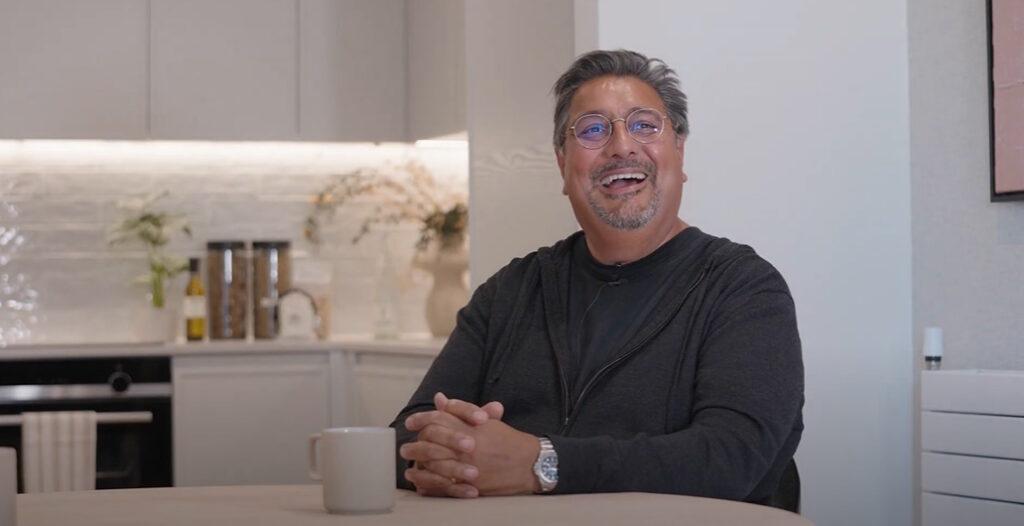
“It’s an emotional purchase, it’s a home, so it’s always better to talk to a person about it”
If I want to go and get a mortgage, where do I start?
Rupi: You start by doing your own research by using search engines like Google, watching Youtube or Tik Tok - there’s lots of information about mortgages and financial advice on there. Start with that, but you really do need to see a person - it’s an emotional purchase, it’s a home, so it’s always better to talk to a person. Go to your parents or people you know who’ve bought a home, ask who they used, ask if they’d recommend them, and then go and see them.
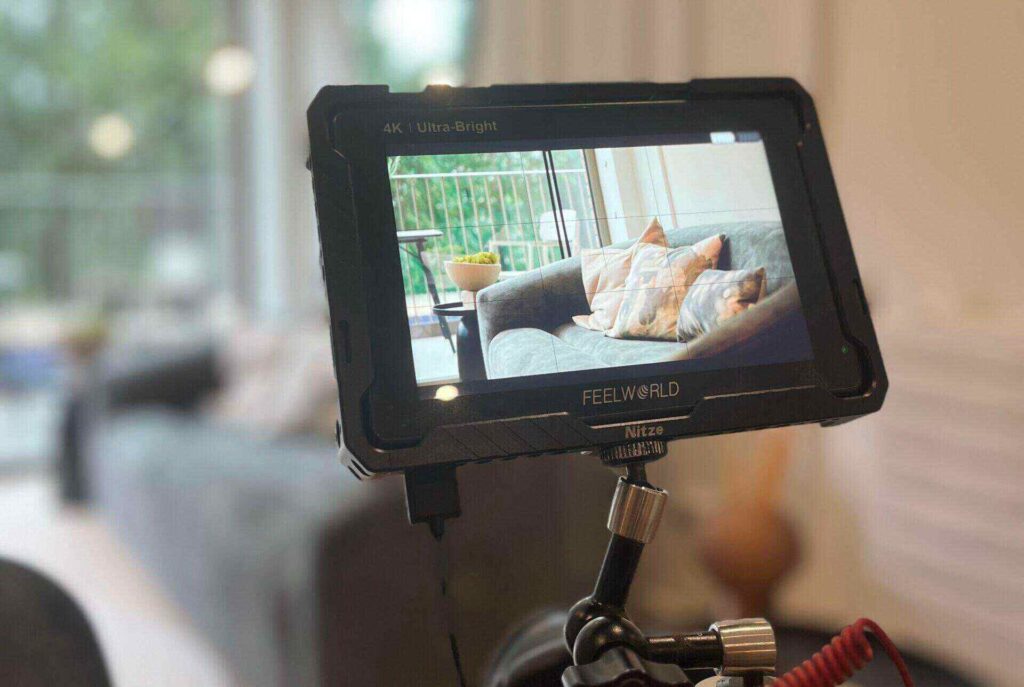
“Buying a home is where you want to live, where you feel secure, where you feel safe”
Interesting that you said emotional purchase, because I definitely feel like this is a story of two halves when it comes to talking about mortgages or buying property. So there’s knowing all the important things about the process, but then it’s very personal and it’s down to the emotional side. How would you advise someone managing those elements?
Rupi: So if you’re buying a house, it’s not very emotional - the building is not very emotional. Buying a home is where you want to live, where you feel secure, where you feel safe, so there is a level of emotion there. Talking to people and asking people how to get a mortgage, how to look after your money in the mortgage probably helps along with that journey because there’s other questions you can ask that person.
We’ve noticed that a lot of people go straight onto a computer and try to get a mortgage, but that doesn’t really work. There’s too many variables and too many questions. We get asked a lot of the time - ‘am i doing the right thing?’, ‘can i afford this?’ because people want to know that they can afford that property today and into the future. A computer will usually say yes or no, but a human can actually judge that situation, a professional can judge that situation and make sure that you’re safe with that debt, which is very important.
How would I manage myself financially - is it like a month by month scenario, or is there more long term thinking around it?
Rupi: First and foremost, to get that mortgage, you’ll need a deposit and an income. So first you need to find out if your deposit is big enough for that mortgage, and do you have enough income for that mortgage. Because if you’re not earning anything and you haven’t got any deposit to put down, the banks probably won’t lend you money. So that’s the first thing - make sure that you’re mortgage ready, your creditworthiness is there, and that you’ve not missed payments or credit. Get yourself into a situation where you have enough of a deposit, enough of an income, and you haven’t got bad credit.
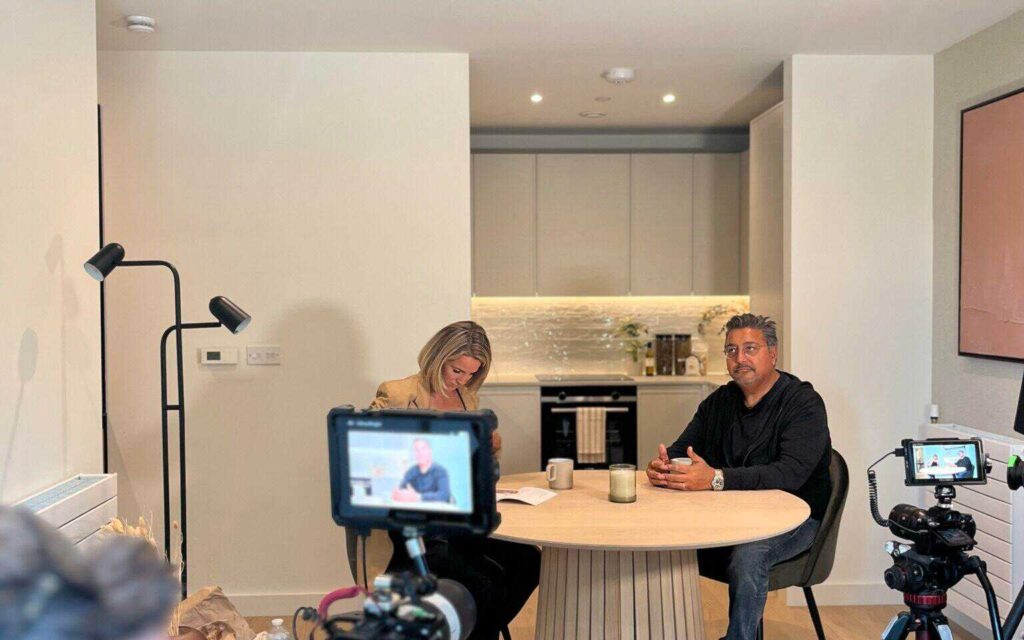
“To get a good credit score, pay your debts, dont go overdrawn too much, and dont have too much debt in the first place.”
You mentioned credit - what is a credit score, why do i need a good one, and what makes a bad one?
Rupi: A credit score is a tool a bank would use to judge whether you’re good for them to lend you money. You can get your credit score, go online, type in credit score, and someone will send you all the information you need, and give you your score. The banks will use that quickly to take a look on whether you’re worth lending to.
How do you get a bad credit score is easy - don’t pay your debts, miss payments, borrow too much and just mismanage your money. They will know - because everything is digital now - whether or not you’ve got a good credit score. To get a good credit score, pay your debts, dont go overdrawn too much, and dont have too much debt in the first place. Banks will use every quantitative method they can find to make sure if they're going to lend you money, they're going to get it back. So hence, credit scores are important.
How far back, records-wise, do banks look for a credit score?
Rupi: If you’ve got a county court judgment, I think they can go back 6 years. They can go back as far as they want to, but usually you need a good credit score for 6 months to a year.
It makes me feel like I'm in trouble if I have a bad credit score, but is there time to fix things?
Rupi: Absolutely. First of all, once you pull down the credit report and go through it with a professional, find out where the flags are for example and work out a way to fix it. For example, you might have missed a mobile phone payment. Some banks will look at that without any kindness, but some will say ‘okay, you’ve missed a mobile payment, but everything else is good’.
Interesting, so different banks will vary?
Rupi: Yes, but they will judge you and charge you an interest rate accordingly.
What is an interest rate?
Rupi: So say I'm a bank and I'm lending you money. To make money on that money, I'm going to charge you to have that money - that’s called an interest rate. The higher the risk you are with a bad credit score, the more I'm going to charge you.
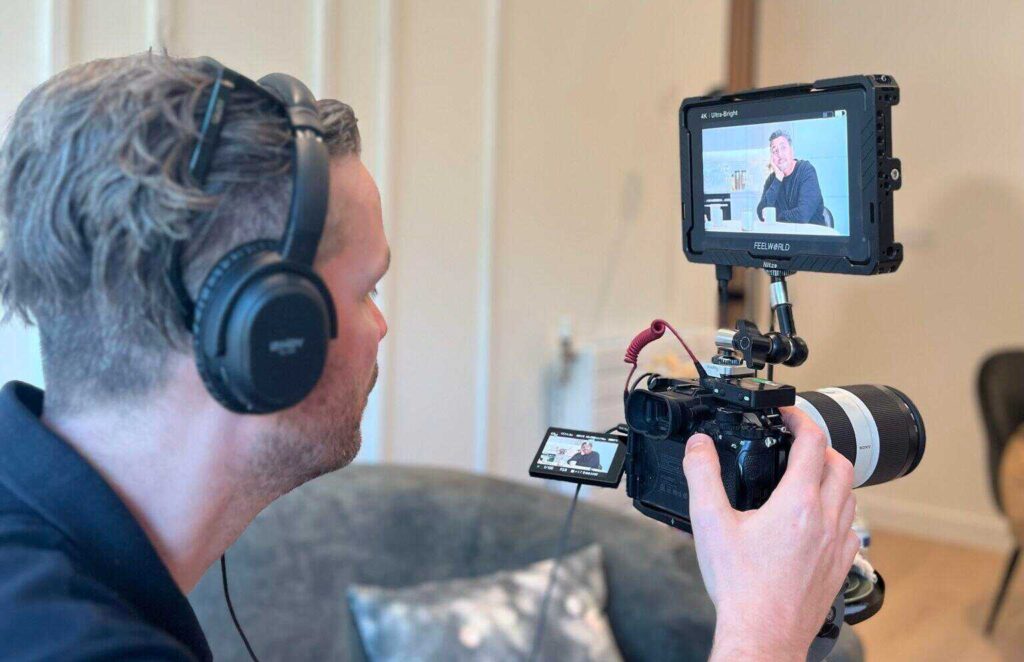
There seems to be a period right now where there’s not a lot of people stepping forward to get a mortgage or committing to this process. Why is that, and what advice do you have to try and help people overcome that step?
Rupi: I think different segments of the property market require different people to purchase. What we’re finding especially in Shared Ownership, is that the demand is still there. Because you’re not only buying a part of it, you’re buying all of the property. So if you bought half of this
flat for example, you could take a mortgage out on half of it after your deposit. And on the other half you’d be paying rent. That rental amount is going to be cheaper than the mortgage right now, so it’s affordable.
People are nervous right now, and they should be, because since 1650 the average rate of interest has been 5%. Then since 2008, it dropped down to around 2%, and we’ve had it really good for a few years. People got so used to it, and now we’re going back to normal, which is that 4-5%mark, and also inflation has gone up. Hopefully the rates will settle down again one day, back to the norm.
But rest assured, if you go to the right professionals to help you get a mortgage right now, no-ones going to be lending you any money, unless they think you can pay it back. If your deposit isn’t big enough, and your income multiples aren’t there, they’re not going to lend to you. Banks forensically look at your finances now, and make sure that if they’re going to lend you money, it’s sustainable, today and into the future. So you've really got to look at what can I afford on a monthly basis over and above the debt.
The percentage mark - when you say 2% or 4% - seems so tiny. Why does it have such a huge impact?
Rupi: When you go from 2% to 4%, it’s a 100% increase - it’s not 2%. 2% of £100,000 is £2000. 4% of £100,000 is £4000. So your outgoings have gone from 2000 to 4000. When it comes to affordability, people used to look at homes and think, oh that’s £200,000, that’s £400,000, I can’t afford it. We used to do that with cars years ago. But then it turns into, how much is that a month? And that’s how people look at homes now. They look at, how much is that going to cost me a month?
The problem we had is, at 2% interest rates, it was so cheap that you can buy a bigger home that you should already be living in cheaply. Now it’s resetting, it’s correcting, and we’ve gone to high interest rates, but the same equations are there. How much is that a month? Can I afford it? Do I have this deposit? Is my job secure? Have i got that income?
And that’s the way i think is here to stay now - what can i afford monthly, and is it sustainable. Can i afford it today and in the future. When banks lend you money, and you sit with a professional advisor, sustainability of that debt is key. And they have a duty to make sure it’s key. And that should be taken into account.
It is scary to borrow money and to buy a house, but what are you really scared of ? are you scared of buying something that would be cheaper next year? Because if you think will it be worth any less in 5 years? probably not. But if you take the long term view of if it will be worth more in 10, you should be alright with buying a home. And then you think, what am i scared of - that i cant afford the debt? Well, you’re not going to be lent it in the first place if you can’t afford it.
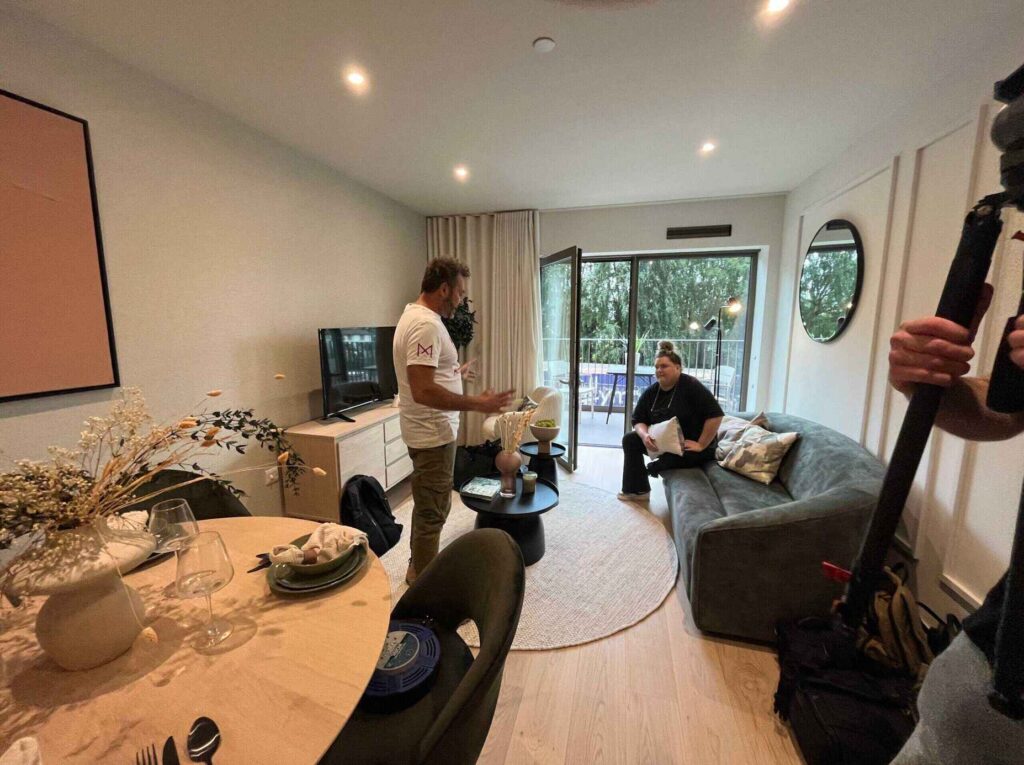
That’s quite encouraging advice, because I find it quite daunting as a subject. Having never had financial advice before, where do I even begin?
Rupi: The problem is, back in 88 there were about 400,000 advisers. There’s a lot less than that now and they’re all getting older. So it’s harder to find a financial advisor. The best place to go is to find someone who has bought a home, like your parents, and ask them who they would recommend. Always go by recommendations, or search for one and book an appointment to see one. Usually, they’re not going to say no, and they won’t charge you for the initial advice.
You can even get information across social media, but do you think this is a situation where, as human to human, it’s time to have a conversation?
Rupi: Yes, you’re about to spend in London the best part of £300,000 or £400,000 - it warrants a proper conversation. Don’t go to a computer to find out. If you talk to a human, they’re liable for that advice. If you go to an internet site, then they’re not liable for that advice - you’re doing it off your own volition. Whereas it is much better to ask for their advice if they are qualified and professional. Go and talk to someone and find out exactly what you can do. You’re not going to find out everything in the first conversation - you’re spending hundreds of thousands of pounds, so you’re not going to find out everything in the first hour. You need to kick this around for a couple of weeks, couple of months in your brain and work out what’s good for you.
Now Shared Ownership which you’ve mentioned, I’m really looking forward to Shared Ownership Week to immerse myself in this subject matter. Events like the London Home Show, et cetera, why are they so beneficial for people like me who need to learn more?
Rupi: They are absolutely fantastic. About 4 or 5 thousand people turn up, you’ve got all the housing associations there, you’ve got mortgage brokers lawyers, you spend a day there, finding out exactly how it all works. They are also running seminars that you can go to, sit down and someone will explain everything you need about mortgages, or about the legal process. Both are very relevant, so it’s a good one stop shop of knowledge. Also, you’ll find out that you’re not the only person in the boat. You find out that there’s thousands of other people looking for homes - it’s a good day.
I think I work quite hard, most of the time, but I'm still struggling to find the money to create a deposit. What advice do you have to try and get a deposit as quickly as possible?
Rupi: It’s a tough one, because deposits have got bigger and that’s the big problem. When houses were cheaper 10s of years ago, the deposit was smaller. So i think the fundamentals are to earn more and save, but that’s not really an option for a lot of people, and that’s where a lot of us find ourselves. The only other option is to look at something that’s slightly cheaper to buy, or look at a government scheme like Shared Ownership where the deposit is a lot smaller than people realise.
What are the other ways that people tend to do it? Is borrowing money okay?
Rupi: Not really - if you borrow, a bank will want to know where you got your deposit from. So if you borrowed it, you’re scheduled to pay it back to someone, so that’s going to affect you. If someone’s gifted you the money, like your parents, that’s a different matter.
So basically the bank needs to know where all the money has come from?
Rupi: Absolutely. They follow the money and they make sure that it’s something called gifted deposits, where those people aren't going to ask you for the money back.
Can we talk actual figures?
Rupi: So say you want to buy a property, and for argument’s sake it’s around £400,000. But if you look at it and think, if I had to find a 10% deposit, I'd have to put down around £40,000, and then borrow the rest. And if that’s on your income multiple, and you’re borrowing around £360,000, you'd have to be earning nearly £80,000 to £90,000 - if we use a rule of thumb of 4 to 5 times the income.
If you only bought a share, you’d only be buying 25% of it, and paying rent on the rest. The rental amount is going to be below 3%, and the £100,000 you’re borrowing - you’d have a smaller deposit and your monthly outgoing would be less. Take into account the share you bought, the rent you pay and the service charge, and it works out substantially cheaper than buying the whole lot outright
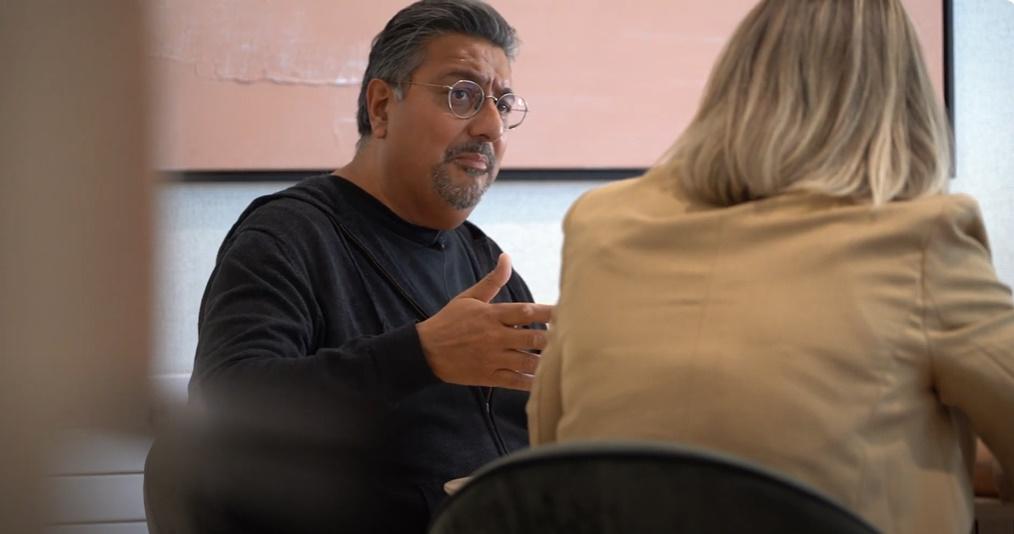
“If you find a property you like and it’s Shared Ownership, I'd hurry up.”
You really have helped me understand what Shared Ownership was. Now, is there a big demand for it at the moment?
Rupi: We see as a firm a massive amount of demand, there is just not enough supply of it. So if you find a property you like and it’s Shared Ownership, I'd hurry up. There are a lot of people looking at it - on average, Share to Buy see's 35 people looking at every property. We’ve whittled it down to about 20 people in London looking at buying a property, and unfortunately not everyone can buy it.
So the demand is high, and if you’re interested you need to start the process straight away.
Rupi: Well have a look firstly to find out exactly how it works, because understanding how it works is important - you don’t want any regrets later. But the majority of people and first-time buyers living in London can’t afford to buy outright, so you need to look at some type of scheme.
What is the one golden tip you would advise people looking into this?
Rupi: Research. I find people researching all sorts of things like trainers and holidays and mobile phones. People know how to find the best mobile phone contract. It’s the same elemental research for finding your home and a mortgage.
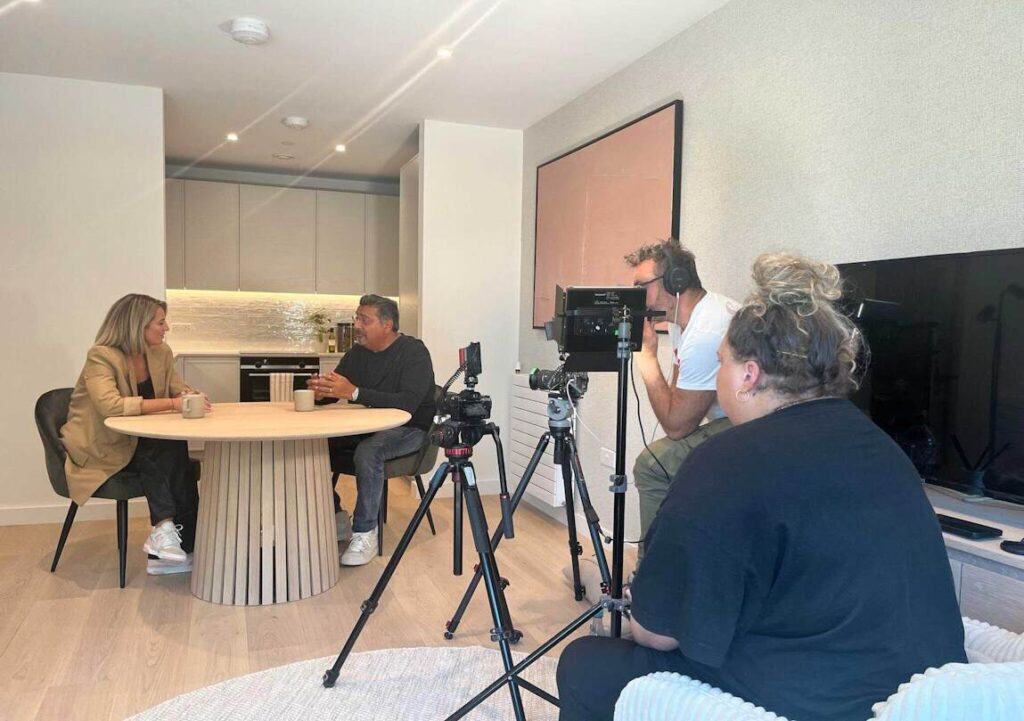
“For me, home means safety and security”
How do you define a home - what does home mean to you?
Rupi: For me, home means safety and security. Be that being made up of secure doors and windows or your family being with you, it doesn’t matter. It makes you feel secure and safe, and that’s why people want homes.
Where would you advise people to go straight away right now if they wanted to find out more?
Rupi: Naturally you’re going to look on the internet, type in Shared Ownership and you’ll find lots of information. But there is also Shared Ownership Week, go to their website, and the London Home Show Website. During September, there is going to be a lot of information about Shared Ownership.
“Take a look at Shared Ownership as a new way of renting, where you’ve got better security or tenure”
Brilliant. Please can you share some final advice for people like me who are renting?
Rupi: It’s unfortunate, people get very anxious about renting, but most of the world rents. There shouldn't be a big stigma towards it, but unless prices come down and housing becomes more affordable, i think a lot of people will be in that position. However, take a look at Shared Ownership as a new way of renting, where you’ve got better security or tenure, because you’ve also bought a slice of it as well. You get the best of both worlds – you rent something that should be cheaper, and you also have the upside of the value that you’ve invested in going up.
